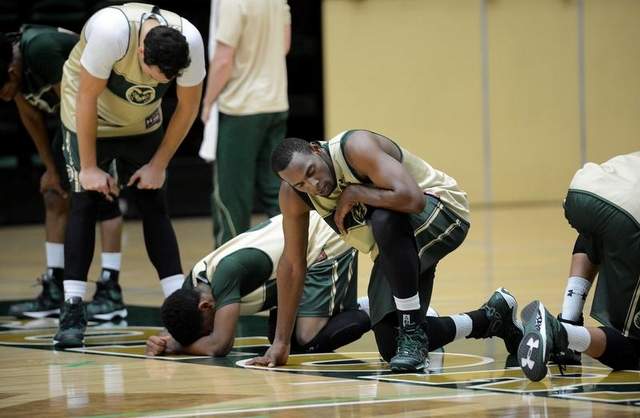
How to Prepare Your Team for High-Stakes Games: Building Mental Toughness, Executing Under Pressure, and Reinforcing Game-Day Focus
Preparing your team for high-stakes games requires careful planning, psychological readiness, and strategic focus. High-stakes games, such as playoffs, championship matches, or key rivalry games, bring heightened pressure and intensity.
Ensuring your team is physically, mentally, and tactically prepared is essential for success. This article outlines strategies for effectively preparing your team for these critical moments.

1. Develop a Detailed Game Plan
Creating a comprehensive game plan helps ensure that your team is well-prepared for the specific challenges of high-stakes games.
Analyze Opponents
Study your opponent’s strengths, weaknesses, and tendencies. Use game film and statistical analysis to gain insights into their strategies and key players.
- Game Film Review: Collect and analyze recent game footage. Look for patterns in offensive and defensive strategies. Pay special attention to how they perform in high-pressure situations.
- Statistical Analysis: Dive into the stats. Evaluate their shooting percentages, turnover rates, and bench performance. This quantitative analysis can help identify areas to exploit.
Create Strategic Adjustments
Develop specific strategies to counter the opponent’s strengths and exploit their weaknesses. This might include adjustments in offensive schemes, defensive alignments, or special plays.
- Tailored Strategies: Create detailed offensive plays that target the opponent’s defensive vulnerabilities. Similarly, prepare defensive schemes that neutralize their top scorers or playmakers.
Practice Scenarios
Incorporate game-specific scenarios into practice sessions. Simulate high-pressure situations, such as late-game scenarios or critical plays, to help players become accustomed to the intensity of the game.
- Situational Drills: Implement drills that mimic the end-of-game scenarios, such as last-minute possessions, executing specific plays under pressure, or transitioning from offense to defense quickly.

2. Focus on Mental Preparation
Mental preparation is crucial for handling the pressure of high-stakes games. Equip your players with the psychological tools they need to perform at their best.
Teach Stress Management
Provide players with techniques for managing stress and maintaining composure. Techniques such as deep breathing, visualization, and positive self-talk can help players stay focused.
- Mental Skills Training: Incorporate mental skills training into practices. Teach players how to refocus after mistakes and maintain a positive attitude.
Set Clear Goals
Help players set clear, achievable goals for the game. Focus on performance-related goals rather than outcome-based goals to reduce pressure and enhance focus.
- Goal-Setting Sessions: Conduct meetings to establish what players hope to achieve during the game, such as executing specific plays correctly or maintaining defensive assignments.
Build Confidence
Use positive reinforcement and build players’ confidence in their abilities. Highlight their strengths and past successes to boost their self-belief.
- Recognition of Achievements: Acknowledge players’ progress and celebrate milestones, reinforcing their belief in their capabilities.
3. Implement a Rigorous Practice Schedule
A well-structured practice schedule helps ensure that your team is physically and strategically ready for high-stakes games.
Prioritize Key Skills
Focus on essential skills and tactics that will be crucial for the upcoming game. Emphasize areas where the team needs improvement and address any weaknesses.
- Targeted Skill Work: Dedicate specific practice segments to skills such as shooting under pressure, defensive positioning, and offensive execution.
Include High-Intensity Drills
Incorporate high-intensity drills that simulate game conditions. This helps players adapt to the physical demands of high-stakes games and improves their stamina and endurance.
- Conditioning Games: Use conditioning drills that are game-like, such as fast-break drills that require quick decision-making and high energy.
Review Game Plans
Regularly review and practice the game plan during practices. Ensure that players are familiar with their roles, assignments, and strategies.
- Frequent Walk-Throughs: Conduct walk-throughs of plays to reinforce understanding and execution.

4. Manage Player Health and Conditioning
Maintaining player health and conditioning is vital for peak performance in high-stakes games. Ensure that players are physically prepared and in optimal condition.
Monitor Physical Health
Keep track of players’ physical health and address any injuries or fatigue. Implement recovery strategies such as stretching, hydration, and rest to keep players in top shape.
- Injury Prevention Programs: Incorporate injury prevention strategies into your training regimen, including proper warm-ups and cool-downs.
Optimize Nutrition
Provide guidance on proper nutrition and hydration. Ensure that players are fueling their bodies with the right foods and staying hydrated to maximize their performance.
- Nutrition Workshops: Consider hosting workshops on nutrition, focusing on how to eat for performance and recovery.
Adjust Workload
Tailor the practice workload to balance intensity and recovery. Avoid overtraining and allow sufficient rest to prevent injuries and fatigue.
- Active Recovery: Include light practices or recovery sessions focused on mobility and flexibility to help players recover without losing conditioning.
5. Create a Supportive Team Environment
A supportive and positive team environment enhances player confidence and performance. Foster team cohesion and morale to prepare your team for high-stakes games.
Build Team Chemistry
Encourage team bonding activities and create opportunities for players to develop strong relationships. A cohesive team is more likely to perform well under pressure.
- Team Building Exercises: Engage in activities outside of basketball, such as team outings or challenges, to strengthen bonds among players.
Provide Emotional Support
Offer emotional support and reassurance to players. Address any concerns or anxieties they may have and foster a sense of unity and collective purpose.
- Open Communication: Create an environment where players feel comfortable discussing their feelings and seeking help.
Encourage Positive Communication
Promote open and positive communication among players. Encourage team members to support and motivate each other, both on and off the court.
- Communication Drills: Incorporate drills that require players to communicate effectively during gameplay.

6. Review and Adjust Strategies
Regularly review and adjust strategies based on practice performance and game conditions to ensure your team is prepared for high-stakes scenarios.
Analyze Practice Performance
Assess how well players are executing the game plan during practice. Make adjustments based on their performance and any issues that arise.
- Feedback Sessions: Conduct sessions where players can provide feedback on what they feel is working or what needs improvement.
Adapt to Changes
Be prepared to adapt your strategies based on any changes or new information about the opponent. Stay flexible and make tactical adjustments as needed.
- In-Game Adjustments: Encourage players to remain adaptable during games, allowing them to make real-time decisions based on the flow of play.
Review Game Film
Continuously review game film to refine strategies and address any issues. Analyze both your team’s performance and the opponent’s tactics to make informed adjustments.
- Post-Game Analysis: Conduct debrief sessions after games to evaluate performance and adjust future strategies accordingly.

7. Focus on Pre-Game Rituals
Pre-game rituals and routines help players mentally and physically prepare for high-stakes games. Establish consistent routines to create a sense of readiness and focus.
Develop Pre-Game Routines
Create and practice pre-game routines that help players get into the right mindset. This might include warm-up exercises, team meetings, or mental preparation activities.
- Consistent Warm-Ups: Develop a warm-up routine that players can consistently follow before every game.
Incorporate Visualization
Encourage players to use visualization techniques to mentally rehearse key plays and scenarios. Visualization helps players build confidence and prepare for game situations.
- Guided Visualization: Incorporate visualization sessions into your practice, allowing players to mentally walk through successful plays and scenarios.
Maintain Consistency
Keep pre-game routines consistent to create a sense of familiarity and stability. Consistency helps players feel more prepared and reduces anxiety.
- Routine Documentation: Provide a written guide of pre-game routines that players can refer to before each game.
How to Prepare Your Team for High-Stakes Games Conclusion
Preparing your team for high-stakes games involves a combination of detailed planning, mental preparation, rigorous practice, and support. By focusing on these areas, you can ensure that your team is ready to perform at its best under pressure.
Effective preparation helps players stay focused, confident, and motivated, ultimately leading to better performance in critical games.



